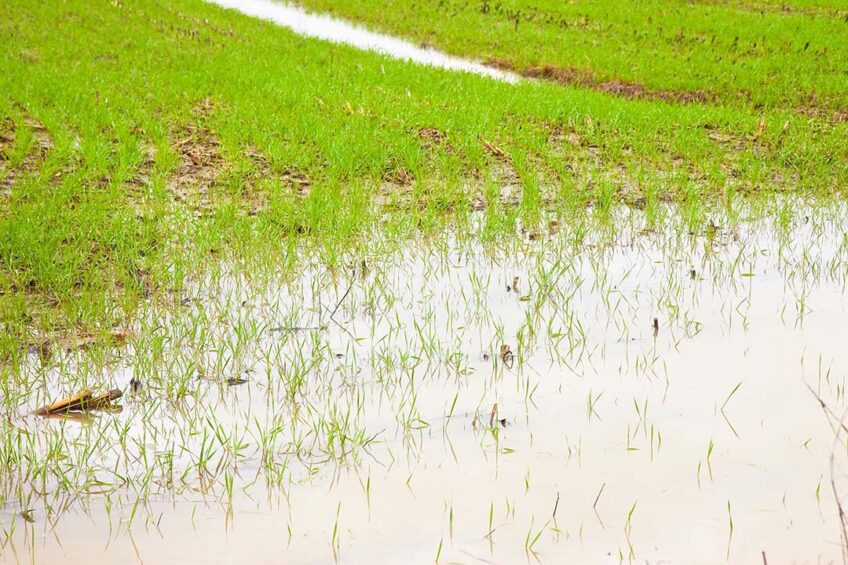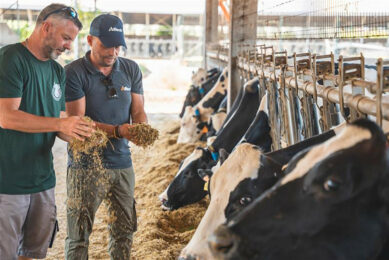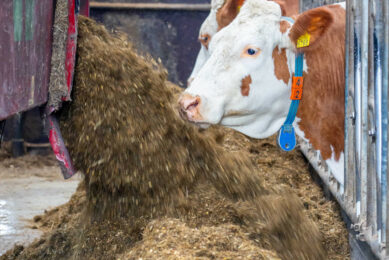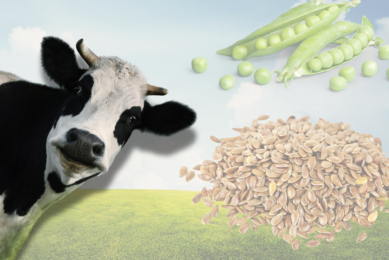Persistent rain a major concern for dairy farmers in Ireland

The persistent bad weather with almost continuous rain for weeks on end is causing major problems for dairy farmers in Ireland. At the beginning of April, 1 out of 10 dairy farmers had run out of fodder.
Because of the continuous bad weather, cattle can’t go out on the grass. Menwhile, feed costs are going up, fodder supplies are dwindling and there are increasing worries about the supply for next winter.
In February, milk processors received 330.4 million litres, which 13.3% less compared to the same month last year and down 10.1% compared to February 2022. That follows declines of 22.3% in January, even 27.1% in December and 19.8% in November, according to figures from the Central Statistics Office in Dublin.
Pressure on dairy farmers
Agriculture minister, Charlie McConalogue, has convened a number of emergency meetings of the national committee on fodder to look for solutions. “I am extremely conscious of the pressure on farmers as a result of continuing and exceptional adverse weather conditions,” he said. McConalogue has ordered a pause on farm inspections not specifically required to support payments. He also asked the agricultural advice and research institute Teagasc to establish a system for coordinating advisory supports to help farmers maximise existing fodder stocks and provide a basis for those with surpluses to engage with those who are struggling.
Milk supplies in a number of co-ops are down by more than 10%. The largest coop, Dairygold, with 7,000 members-suppliers, told agricultural magazine Agriland that milk supply so far this year is back 9% on 2023. Arrabawn similarly stated that milk supply is back between 8% and 10% in February compared to 2023 while Tirlan reported that yields/cow are 10% lower than the same period last year. So far, Tirlan has not commented on the consequences for the large new cheese factory it is currently building in Kilkenny with the Dutch partner Royal A-ware.
The biggest year-to-date drop in milk supply has been seen within Carbery group where milk volumes are down 14% for the first 12 weeks of the year, compared to 2023, Agriland reported.
Worried dairy farmers
The Irish farmers unions are seriously worried about the problems their dairy members are facing. President Francie Gorman of the Irish Farmers’ Union said: “Processors have to return every cent from the market to dairy and livestock farmers, who have been unable to get out to grass this Spring. Dairy farmers are having a dreadful time with the desperate weather conditions. While falling stocks of fodder, full slurry tanks and the huge additional workload are serious issues, what farmers really need now is a boost to cashflow.”
“Now is the time for our co-ops and processors to step up and make a top up payment on March milk,” he added. Gorman also worries about the mental conditions of IFA’s members: “It is clear that farmers are under huge pressure. It is important that farmers check in on their neighbours this weekend. Farmers should not be afraid to ask for help.”
The president of Irish Creamery Milk Suppliers’ Association Denis Drennan fully agrees: “Some farmers are in a very difficult position and it is important that the government and stakeholders prepare – or at least look at ‘worst case’ scenarios – instead of ‘crossing their fingers’ and hoping that the weather improves and gives better prospects. While we don’t want to panic anybody, we really have to guard against the kind of complacency that actually could cause problems. Farmers will have got the latest weather forecasts increasing their concerns; cows still can’t be turned out, fertiliser cannot be spread and we’re already getting worried about adequate fodder for next winter and what kind of quality that will be.”
Join 13,000+ subscribers
Subscribe to our newsletter to stay updated about all the need-to-know content in the dairy sector, two times a week.










